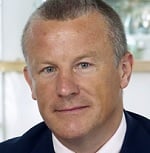 |
| Neil Woodford |
Inside U.K. biopharma circles, you can find few people more influential than veteran fund manager Neil Woodford. He helped AstraZeneca ($AZN) beat back Pfizer's ($PFE) takeover attempt. And at a crucial point last year, Woodford provided some much needed confidence in GlaxoSmithKline ($GSK) as he voiced his approval of the company's strategic direction in the face of its eroding financial performance and sliding share price.
Now, at least as far as long-suffering GSK is concerned, that confidence appears to have run thin after Woodford has begun to campaign for the pharma giant to formally explore a breakup, according to a report from Sky News. If it does spin out its consumer, HIV (the joint venture Viiv) and dermatology businesses, the move to concentrate on pharma/vaccines would shine an even brighter light on the company's poor pipeline performance and questionable future in drug development.
According to press reports Woodford has been huddling with GSK Chairman Philip Hampton, rather than CEO Andrew Witty, who has seen the share price decline as hard competition to its flagship drug franchise for Advair slowly takes shape.
While confidence in GSK has been flagging in most investment circles, Woodford's move to invest more money in GSK last month also helped bolster the company. But the added clout he now has with management may reverse Witty's decision to keep hold of Viiv as well as the other big operating units.
GlaxoSmithKline has come under pressure after Breo Ellipta, its intended successor to Advair, failed to demonstrate that it could reduce mortality rates for COPD. That left Breo--which earned about $100 million last year--looking like another Advair, which is likely to face near-term competition in the crucial U.S. market.
Witty has been touting the company's pipeline more recently as well as its commitment to steady, though low-margin, businesses like vaccines, which inspired a recent asset swap with Novartis. In a recent address, the CEO touted GSK's commitment to first-in-class therapies, noting that one of the antibiotics in development has real potential. And he reiterated the company's R&D commitment to pursuing new bolt-on deals and academic pacts.
That's the same strategy that Witty has pursued for some time now, adding in a major restructuring of its big U.S. research operations. But it has failed to deliver big new products and appears to be losing support from Woodford as a near-term tonic. If other big investors agree, big changes could be in store for GSK.
- here's the story from Sky News